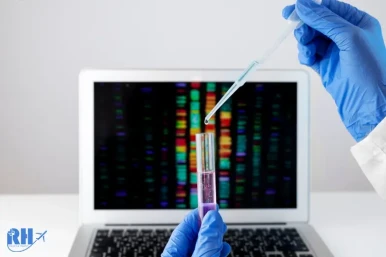Genetic Testing Before and During a Surrogate Pregnancy
Fertility Treatment
When couples choose IVF surrogacy to build their families, ensuring the health of the baby is the top priority. Whether using your own eggs and sperm or donor gametes, surrogacy genetic testing before and after embryo transfer plays a vital role in reducing the risk of inherited disorders and increasing the chance of having a healthy baby. However, since some tests are costly or invasive, it is important to know which genetic tests are most beneficial for surrogacy and how each one works.
This article will learn you about embryo genetic testing in surrogacy.
Genetic Testing Before Surrogacy
Before an embryo is transferred to the surrogate mother, doctors recommend preimplantation genetic testing (PGT) to evaluate embryo health and prevent genetic diseases. These tests are performed in the laboratory on embryos created through IVF and do not involve the surrogate mother. The main pre-surrogacy tests include:
- Preimplantation Genetic Diagnosis (PGD / PGT-M);
- Preimplantation Genetic Screening (PGS / PGT-A);
- Preimplantation Genetic Testing for Structural Rearrangements (PGT-SR).
/58_1756546788_large_1758955654_large.webp)
PGD
Preimplantation Genetic Diagnosis (PGD / PGT-M) detects single-gene disorders such as cystic fibrosis and ensures only healthy embryos are selected.
PGS
Preimplantation Genetic Screening (PGS / PGT-A) screens for chromosomal abnormalities related to chromosome number (too many or too few) and also examines sex chromosomes. It helps identify conditions like Down syndrome and prevents the use of embryos with aneuploidy.
PGT-SR
PGT-SR (Structural Rearrangement) examines chromosome structure when parents carry translocations or inversions, helping prevent miscarriage or failed implantation.
Genetic Tests During Surrogate Pregnancy
After embryo transfer, several prenatal genetic tests can be performed to monitor the baby’s development. These tests may involve the surrogate mother directly:
- Amniocentesis;
- Chorionic Villus Sampling (CVS);
- Non-Invasive Prenatal Testing (NIPT).
/91_1759043041_large.webp)
Amniocentesis
Performed after week 15, it checks amniotic fluid for genetic disorders such as Down syndrome, cystic fibrosis, or spina bifida.
Chorionic Villus Sampling (CVS)
Conducted in early pregnancy, CVS tests placental tissue for chromosomal abnormalities. It can detect conditions like Down syndrome, Edwards syndrome, or Patau syndrome and identify missing or extra chromosomes and significant structural changes.
Non-Invasive Prenatal Testing (NIPT)
In non-invasive prenatal screening, known as NIPT, which analyzes fetal free DNA (cfDNA), a blood sample from the surrogate mother is used to detect the condition of certain genes in the fetus. This test, which is often performed in several stages around the 10th week of pregnancy, can help identify Down syndrome and other chromosomal disorders. If the amount of DNA from the surrogate mother is low, the test may be inconclusive and may need to be repeated.
/57_1756546967_large_1758955774_large.webp)
Conclusion
Since surrogate embryos are created through IVF, genetic screening in surrogacy allows doctors to carefully select the healthiest embryos for transfer. This significantly lowers the risk of hereditary diseases, miscarriages, and chromosomal problems. Still, both preimplantation genetic testing and prenatal genetic tests are recommended to maximize the chances of having a healthy baby through surrogacy.
Contact us for a free initial consultation about Surrogacy
FAQs
Is genetic testing required for the surrogate mother?
The surrogate undergoes her own health checks, but embryo-related genetic tests only concern the IVF embryos.
Are genetic tests only blood tests?
No. Some tests use amniotic fluid or placental tissue samples.
Can genetic testing determine the baby’s sex in surrogacy?
Yes. Lab tests such as PGD before embryo transfer can determine the embryo’s sex.

 WhatsApp
WhatsApp
 Telegram
Telegram
 Facebook
Facebook
 Email
Email

No reviews
Your comment